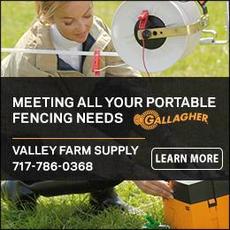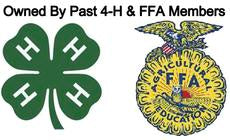Idea exchange among individuals, referred to as knowledge spillover in some circles, is a common occurrence in today's digitally-connected society. In the grazing world, this knowledge spillover is especially evident. Livestock graziers are some of the most progressive in agriculture to share their ideas and experiences with each other. And as fate would have it, the best arena for this exchange to occur still happens to be a face-to-face meeting in the pasture. According to Jack Kyle, grazier specialist for Ontario's Ministry of Agriculture, Food, and Rural Affairs a pasture walk is exactly what it sounds like, "It's a meeting that takes place out in a pasture or field." "Rather than sitting and watching a PowerPoint presentation or a speaker in a room, we go out in the field," says Kyle. "It becomes very much hands-on and people like it because they are outside and it's fairly informal." Kyle has found this method of learning and discussion between livestock farmers to be a very positive experience. He notes one of the largest benefits to getting out in a pasture field is the ability to see and understand what the current challenges and opportunities available are first-hand. Patricia Johnson, a beef cattle farmer from north-central Virginia, has participated in many pasture walks in her twenty years of grass-finishing cattle. She believes this form of knowledge sharing offers an invaluable payback to her and her fellow graziers. In other segments of agriculture, yield-based comparisons such as weight and bushels translate directly into dollars. "The value of a grazing system is a little less tangible, hard to quantify, and even harder to appreciate," says Johnson. "A visual analysis helps give us an idea where we are." "It's tricky because it's not about better management, because everyone's objectives and circumstances are so different," Johnson says. "It's about different management." Johnson notes as a producer it's important to remember attending a pasture walk is an assessment, not an exhibition. The experience is meant to be comparative in nature, not a competition to see who has the best pasture. "It's a good way to see how others manage similarities, and how they manage differences," says Johnson. "You'll get ideas on waterers, gates, fly control, fencing, and handling facilities." While it is common for most meetings to have an agenda, the informal nature of a pasture walk allows for flexibility in discussion. "They (pasture walks) all have a focus, but often we deviate quite a bit from that focus," says Kyle who regularly speaks at pasture walks and forage-related events. "We usually spend an hour to hour and a half and can cover a lot of different topics." Topics discussed can cover a wide range of issues in a single meeting, from weed problems, species composition of pastures, overgrazing and livestock grazing behavior, to more unusual topics like ideal distribution of cow paddies across a pasture. "This allows us to focus on what the really positive features are in the particular farm and pasture we are looking at, while also gently talking about the negatives," says Kyle. Of even greater benefit to producers, is hosting a pasture walk on their own farm, says Kyle. Like any meeting, hosting a pasture walk takes planning and effective communication skills to spread the word about the event. The vital components are a group of interested people to attend, a topic to discuss, a location that fits the topic, and a time that works for all parties involved. "You need a leader, most often a guest speaker, who can facilitate the discussion," Kyle says. Potential groups of interested people can be part of a local organization such as a county cattlemen's association or state grasslands council. Topics discussed will vary by season and locale. Hosting provides the resident producer with a forum to share things they are trying to do to improve their forages, livestock and grazing management or discuss problems they are having. In return, they get to hear input from a number of people, different ideas and perspectives on what they are doing and in many instances are able to come up with solutions for each other. The 'spillover effect' of all this idea and knowledge sharing is the planting of innovation-stimulating ideas in the minds of the individuals listening and receiving them. Whether hosting or attending, producers who participate in a pasture walk are guaranteed they will go home with new ideas and solutions to help them improve upon their current management and spur innovative new ideas on their own operations. For opportunities to exchange on-farm information by participating in a pasture walk, grazing clinic or other informational clinic, visit Gallagher's event listing. - Authored by Jesse Bussard a agricultural writer based in Bozeman, Montana. -
September 26, 2014
INNOVATIVE IDEAS, PROBLEM-SOLVING BENEFIT OF PASTURE WALKS
INNOVATIVE IDEAS, PROBLEM-SOLVING BENEFIT OF PASTURE WALKS - News - Gallagher Animal Management





